 I’ll be honest with you. I’ve always liked New Year’s more than Christmas.
I’ll be honest with you. I’ve always liked New Year’s more than Christmas.
I know. I’m sorry, but it’s true.
Christmas is fine. Here’s to redemption, and kindness, and gifts that say, “I’ve tried to pay attention.” I like seasonal movies and music – the same 74 songs have been playing endlessly from my red flash drive since Thanksgiving, only a few of which are humorous and none of which involve singing animals or grandma’s demise. And I cry at the same parts of the same films annually – Bill Murray’s redemption in Scrooged, Michael’s efforts to stir up Christmas Spirit (so Santa’s sleigh can fly) in Elf, even Charlie Brown and that same, sad little tree every year since before I was born.
 I don’t really do “wacky dysfunctional family” movies whether they’re Christmas-themed or not, so that’s eliminated most of the seasonal fare from the past decade or so. I won’t even talk about Bad Santa or anything crass and offensive but with Noels and Tannenbaums slapped on for cheap laughs. I do generally enjoy obscure claymation, but I’ve dialed back that genre since experiencing Nestor, the Long-Eared Christmas Donkey about five years ago. It was just so… sincere. And disturbing. And wrong wrong wrong, only with an actual Nativity anchoring the plot.
I don’t really do “wacky dysfunctional family” movies whether they’re Christmas-themed or not, so that’s eliminated most of the seasonal fare from the past decade or so. I won’t even talk about Bad Santa or anything crass and offensive but with Noels and Tannenbaums slapped on for cheap laughs. I do generally enjoy obscure claymation, but I’ve dialed back that genre since experiencing Nestor, the Long-Eared Christmas Donkey about five years ago. It was just so… sincere. And disturbing. And wrong wrong wrong, only with an actual Nativity anchoring the plot.
There’s just not enough nog in the fridge to risk something like that again.
So I’m not anti-Christmas. I am, however, a much bigger fan of new beginnings. Fresh starts. Rebooting to factory settings. The season may begin with Thanksgiving, but it doesn’t end until New Year’s Day. It’s practically a package deal, and rightfully so. Whatever else the Baby Jesus was about, His story is certainly about being made new, yes? About the possibility of having your failures and screw-ups washed away – at least metaphorically – and starting over. Being born… again.
Which is, you know… amazing.
But it’s New Year’s that makes it tangible and contains a less lofty, more literal rebirth. It’s not really about staying up until midnight, although I usually do, even now. I personally have zero interest in big parties or raucous countdowns, and while I’ve been known to have a drink or two, most of the time it takes about 2/3 of a single Redd’s Blueberry Ale before I’m asleep on the couch with my neck in some horrible position and fruitcake crumbs spilling down my Star Trek PJs.
 And I don’t really make big resolutions – at least not any more than throughout the rest of the year. People talk about keeping that Christmas feeling all year long, but the holiday I’m most likely to emulate endlessly comes a week later.
And I don’t really make big resolutions – at least not any more than throughout the rest of the year. People talk about keeping that Christmas feeling all year long, but the holiday I’m most likely to emulate endlessly comes a week later.
The number of things I vow I’ll never do again times the number of healthy habits I swear I’ll get serious about next week minus the total occurrences of complete and utter failure equals the square root of why do I even bother – plus or minus self-loathing and hope.
But that’s the thing about reboots and new beginnings. It doesn’t really matter how much you’ve failed before. How often you’ve fallen short. How regularly you wish you’d just… ARRRGHHH! GET IT RIGHT, YOU $#%^*!
Because tomorrow you get up and try again. Because it’s a new morning. It’s a new week. It’s a new semester, a new season, a new job, a new place, a new chance, a new identity, a new direction.
It’s a new year. Like, literally.
 I know it’s not miraculous – that’s the one from the week before. I know that a clean slate, like fresh snow, is in many ways just another canvas on which you’ll no doubt spill your badly-mixed watercolors, probably sooner rather than later. And it will smudge right away and smell funny and tear on the one side you thought was actually going rather well, because…
I know it’s not miraculous – that’s the one from the week before. I know that a clean slate, like fresh snow, is in many ways just another canvas on which you’ll no doubt spill your badly-mixed watercolors, probably sooner rather than later. And it will smudge right away and smell funny and tear on the one side you thought was actually going rather well, because…
Because that’s just how real life is.
But for a moment, it’s new. For a moment, there’s hope. Enough of those, strung together… well, that’s kinda like ongoing possibility, isn’t it? And it’s not like you can keep doing everything wrong the same way forever – if nothing else, the sheer volume of monkeys and typewriters should produce moments of merit if you simply give it enough time.
And sometimes you get it right. Sometimes you do good. Sometimes you don’t suck. Sometimes… you’re a slightly better version of you.
When that happens, make a note. Mark it down. Build internal monuments, not to worship, but to remember.
That it went well. That it helped, and you mattered, and things were a smidgen better when you tried. That the risk paid off and the hurt lessened and she felt hope and he felt stronger and maybe…
 Maybe that can happen again.
Maybe that can happen again.
Mark it down, dammit – CLING TO IT LIKE LIFE. You’ll need it for reference, and sooner than you think.
Because you’ll probably mess something up again, or at least not catch something you should have caught. You’ll try to fix something and make it worse, or act like a jerk when you fully meant to keep it together. Maybe you’re not as creative as you wish or as smart as you like to think, or maybe you’re simply alarmingly average in the grand scheme of things.
Maybe you’re a screw-up and terrified of how much worse it could be if people really knew. Maybe you feel fat, or maybe you throw up to numb the chaos, or you wish you’d stayed in school or found a better job. Maybe you’ve hurt people and they’ve hurt you and you’re not even sure which parts are your fault anymore.
Maybe you’ll have high hopes for the new year but still find yourself tired and angry and wrestling with despair because what the hell is even happening anymore and why do more people not see it and how can we possibly respond when we’re just so inadequate and small and flawed and…
stupid
dirty
emotional
tired
numb
poor
tired
meek
scared
tired
worried
broken
tired
angry
tired
inadequate
tired
tired
seriously so very tired?
 But it’s a new year in a few weeks. And a new week even before that, and again after. It’s a new day tomorrow, and the next day, and the next.
But it’s a new year in a few weeks. And a new week even before that, and again after. It’s a new day tomorrow, and the next day, and the next.
And you’re surrounded by other inadequate, frustrated, flawed, wonderful folks who will probably make you crazy as often as they make you feel better. Help them. Encourage them. Push them. And they’ll do the same for you.
Don’t lie to them, or to yourself. You can’t fight darkness with lies (duh). But help them see what they’re doing right, and to notice when they do good. Sometimes they don’t suck. Sometimes… they’re that better version of themselves they always kinda hoped they might be.
When that happens, make a note. Share it when it feels right. Build some monuments, not to worship, but to remember. Be a Reminder, a Did-You-Noticer, and a Hip-Hip-Hoorayer for those struggling around you. And when you do fall short, or go so so totally wrong, know that morning is coming. A new week is near. Just keep restarting, dammit.
It’s a new year, kids. You can help. You can matter. Things can be a smidgen better because we kept trying, and because you helped someone else keep trying as well.
We just need enough monkeys. Bring your typewriters.

RELATED POST: Happy New Mirrors!
RELATED POST: Seven Reasons You Probably Don’t Suck (For Teachers)
RELATED POST: Making Good Choices (A Post For My Students)

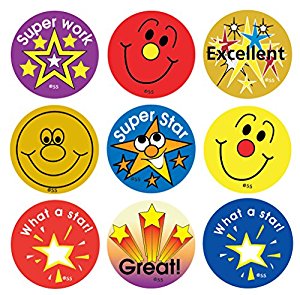 Several years ago, I had a sub who went a bit above and beyond. She not only took up whatever assignment I’d left for that day – she organized the papers and completion-graded them. In other words, she noted who’d finished and seemed to have taken the work seriously. She didn’t give them a number or a letter grade, of course – that would have been bold. But she did give each paper meeting her requirements a sticker.
Several years ago, I had a sub who went a bit above and beyond. She not only took up whatever assignment I’d left for that day – she organized the papers and completion-graded them. In other words, she noted who’d finished and seemed to have taken the work seriously. She didn’t give them a number or a letter grade, of course – that would have been bold. But she did give each paper meeting her requirements a sticker. A week or two later I was at one of those Everything’s A Dollar So Stop Asking places with my wife, looking for who-knows-what, and I noticed several packages of the most obnoxious rainbow and puppy stickers. I grabbed them. Then some generic superheroes – not Marvel, not even DC, but some cheap knock-off assortment of colorful caped stereotypes. I spent less than ten dollars total, purely on a whim – what they heck, right?
A week or two later I was at one of those Everything’s A Dollar So Stop Asking places with my wife, looking for who-knows-what, and I noticed several packages of the most obnoxious rainbow and puppy stickers. I grabbed them. Then some generic superheroes – not Marvel, not even DC, but some cheap knock-off assortment of colorful caped stereotypes. I spent less than ten dollars total, purely on a whim – what they heck, right? I may have gotten a bit too excited and purchased way too many random, quirky packs of adhesive approval throughout the years. There were a few times I almost gave assignments just to use my cool new stickers! (Almost, I said. Stop judging me!)
I may have gotten a bit too excited and purchased way too many random, quirky packs of adhesive approval throughout the years. There were a few times I almost gave assignments just to use my cool new stickers! (Almost, I said. Stop judging me!)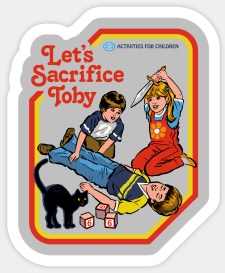 I mean, I gave her the sticker. She said thanks, and looked a little confused. We kept going, and eventually I reacted to another thoughtful response with a second sticker. Then a third. Because when something’s not working, you have to do it more, faster, and with greater emphasis.
I mean, I gave her the sticker. She said thanks, and looked a little confused. We kept going, and eventually I reacted to another thoughtful response with a second sticker. Then a third. Because when something’s not working, you have to do it more, faster, and with greater emphasis.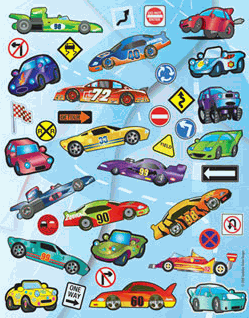 And one day they won’t work, or at least they won’t work the same way. That doesn’t mean I’ve failed, or that you’re doing it wrong. It just means that things change. The kids are different. You’re different. The context is ever-evolving and the exact dynamics maddeningly elusive. So we’ll find something else. You’ll try it another way. I’ll screw up a few times, feel like an idiot, then stumble into pedagogical brilliance once again.
And one day they won’t work, or at least they won’t work the same way. That doesn’t mean I’ve failed, or that you’re doing it wrong. It just means that things change. The kids are different. You’re different. The context is ever-evolving and the exact dynamics maddeningly elusive. So we’ll find something else. You’ll try it another way. I’ll screw up a few times, feel like an idiot, then stumble into pedagogical brilliance once again. It’s funny how badly we want things to be all one way or all the other. For such maddeningly complicated creatures, we seem wired to crave the binary.
It’s funny how badly we want things to be all one way or all the other. For such maddeningly complicated creatures, we seem wired to crave the binary. We’ve all had those kids who seem to believe in the core of their being that nothing is, was, or could ever be their responsibility to tiniest degree. They usually have parents who feel the same way, and who let us know regularly all the things we’re doing to thwart their lil’ Boo-Boo’s success.
We’ve all had those kids who seem to believe in the core of their being that nothing is, was, or could ever be their responsibility to tiniest degree. They usually have parents who feel the same way, and who let us know regularly all the things we’re doing to thwart their lil’ Boo-Boo’s success. 

 It’s binary. Raised to take personal responsibility, they fear the least acknowledgment of factors outside their control – lest they find themselves “making excuses.” In not wanting to flake out, they take denial to the weirdest places – stuffing the resulting misery down into their little psyches for safe-hiding.
It’s binary. Raised to take personal responsibility, they fear the least acknowledgment of factors outside their control – lest they find themselves “making excuses.” In not wanting to flake out, they take denial to the weirdest places – stuffing the resulting misery down into their little psyches for safe-hiding. I wasn’t being fair. Their team gets easy questions, while ours always gets the hard ones. Why are we doing this anyway? It doesn’t help. How are we supposed to remember all of this?! Can I just go work in the hall?! WHO CAME UP WITH THIS LIFE DESPAIR ANGER DARKFARGLE ACCUSING DEATHCRY!
I wasn’t being fair. Their team gets easy questions, while ours always gets the hard ones. Why are we doing this anyway? It doesn’t help. How are we supposed to remember all of this?! Can I just go work in the hall?! WHO CAME UP WITH THIS LIFE DESPAIR ANGER DARKFARGLE ACCUSING DEATHCRY! 

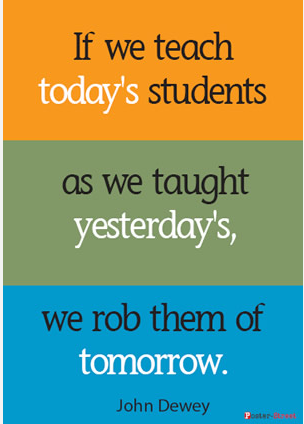 It’s funny the things that make us uncomfortable.
It’s funny the things that make us uncomfortable. In the midst of the chaos, we’ve introduced “World History” and what it means to add “AP” to the beginning. I’ve crammed in a few lectures, some jigsaw reading, a pretty big discussion about foundational themes – all while trying to get to know my kids enough to be effective in a new subject in a new place in a new reality stream.
In the midst of the chaos, we’ve introduced “World History” and what it means to add “AP” to the beginning. I’ve crammed in a few lectures, some jigsaw reading, a pretty big discussion about foundational themes – all while trying to get to know my kids enough to be effective in a new subject in a new place in a new reality stream. My ears eventually picked up the subtle scribbling of little mechanical pencils, and the periodic turning of pages. After what must have been seventeen or eighteen hours, a young lady leaned over to her tablemate and pointed to something in the text, whispering an apparent inquiry. Her cohort considered whatever she’d said, then nodded and gave a brief response which seemed to satisfy her. They both then continued doing this… this… horrifying “old way” schoolness.
My ears eventually picked up the subtle scribbling of little mechanical pencils, and the periodic turning of pages. After what must have been seventeen or eighteen hours, a young lady leaned over to her tablemate and pointed to something in the text, whispering an apparent inquiry. Her cohort considered whatever she’d said, then nodded and gave a brief response which seemed to satisfy her. They both then continued doing this… this… horrifying “old way” schoolness.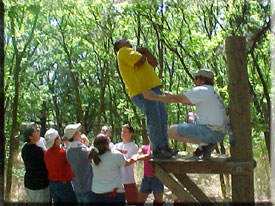 If you’ve taught for any length of time, you’ve endured endless PD days, videos, handouts, faculty presentations, and perhaps even a horrible skit or two, built around three basic assumptions: (a) all teachers used to suck in every possible way, providing endless “before” examples, (b) most current teachers have no idea how to work with young people and probably don’t even like them very much, usually because of our cultural insensitivity, and (c) if we don’t embrace {insert trendy strategy here}, we’ll continue to suck and most likely destroy the future.
If you’ve taught for any length of time, you’ve endured endless PD days, videos, handouts, faculty presentations, and perhaps even a horrible skit or two, built around three basic assumptions: (a) all teachers used to suck in every possible way, providing endless “before” examples, (b) most current teachers have no idea how to work with young people and probably don’t even like them very much, usually because of our cultural insensitivity, and (c) if we don’t embrace {insert trendy strategy here}, we’ll continue to suck and most likely destroy the future. So I’d like to assure all of the baby teachers out there, and remind some of the veterans, that all instructional and classroom management advice – the pedagogy, the brain research, the anecdotes, the activities – are (or should be) about giving you ideas. Options. Tools. Challenging you, or inspiring you. Maybe shaking you up or forcing you to question how you do things from time to time.
So I’d like to assure all of the baby teachers out there, and remind some of the veterans, that all instructional and classroom management advice – the pedagogy, the brain research, the anecdotes, the activities – are (or should be) about giving you ideas. Options. Tools. Challenging you, or inspiring you. Maybe shaking you up or forcing you to question how you do things from time to time. Question your methods, absolutely. Challenge your perceived results. Be transparent with your co-workers in considering ways to be more effective. Don’t be insecure and stuck in the mythical, dark “ancient ways.”
Question your methods, absolutely. Challenge your perceived results. Be transparent with your co-workers in considering ways to be more effective. Don’t be insecure and stuck in the mythical, dark “ancient ways.”

 Statistics say, in fact, that you’re probably pretty good. Once you control for poverty and upbringing and factors well-beyond your control, the reality is that most American public school teachers are at least adequate, and many are quite impressive much of the time. If this is your first year, you’re probably not as good as you will be in two more; if this is your twentieth, it’s possible you’ve lost some of the passion of your first fifteen. But overall, I suspect you’re a miracle worker every day and simply don’t see it.
Statistics say, in fact, that you’re probably pretty good. Once you control for poverty and upbringing and factors well-beyond your control, the reality is that most American public school teachers are at least adequate, and many are quite impressive much of the time. If this is your first year, you’re probably not as good as you will be in two more; if this is your twentieth, it’s possible you’ve lost some of the passion of your first fifteen. But overall, I suspect you’re a miracle worker every day and simply don’t see it.
 18% failed their common assessment; what can YOU do differently? Absenteeism is up; what can YOU do better? Some demographics are being disciplined out of proportion to others; what are YOU doing wrong? How can YOU reach more kids? How can YOU solve more problems? How can YOU meet more needs? What are YOU doing to modernize or personalize or gamify your curriculum? Why did YOU give little Bobo that ‘F’? How can YOU get more parents involved? What are YOU doing about global warming? Nuclear disarmament? World hunger? Transgender issues? That one computer mouse that keeps getting stuck? WHY HAVEN’T YOU FIXED IT ALL YET?!?!
18% failed their common assessment; what can YOU do differently? Absenteeism is up; what can YOU do better? Some demographics are being disciplined out of proportion to others; what are YOU doing wrong? How can YOU reach more kids? How can YOU solve more problems? How can YOU meet more needs? What are YOU doing to modernize or personalize or gamify your curriculum? Why did YOU give little Bobo that ‘F’? How can YOU get more parents involved? What are YOU doing about global warming? Nuclear disarmament? World hunger? Transgender issues? That one computer mouse that keeps getting stuck? WHY HAVEN’T YOU FIXED IT ALL YET?!?! You keep finding ways to make it work. You keep finding ways to reach as many as you can. When you can’t, it’s not because you suck – it’s because the system simply isn’t set up in a way that benefits most kids individually – it’s set up in the cheapest way possible that still kinda teaches kids in bulk.
You keep finding ways to make it work. You keep finding ways to reach as many as you can. When you can’t, it’s not because you suck – it’s because the system simply isn’t set up in a way that benefits most kids individually – it’s set up in the cheapest way possible that still kinda teaches kids in bulk. 
 But you don’t have to suck – not going forward. You’ve had the training, you have (or had) the ideals, you know kinda how it’s supposed to work. So fix it. Try something different. Consult trustworthy peers in your building and ask what’s working for them. Find that administrator who’s not a jerk and let them know you’re looking for ways to improve – they LOVE that stuff.
But you don’t have to suck – not going forward. You’ve had the training, you have (or had) the ideals, you know kinda how it’s supposed to work. So fix it. Try something different. Consult trustworthy peers in your building and ask what’s working for them. Find that administrator who’s not a jerk and let them know you’re looking for ways to improve – they LOVE that stuff. 